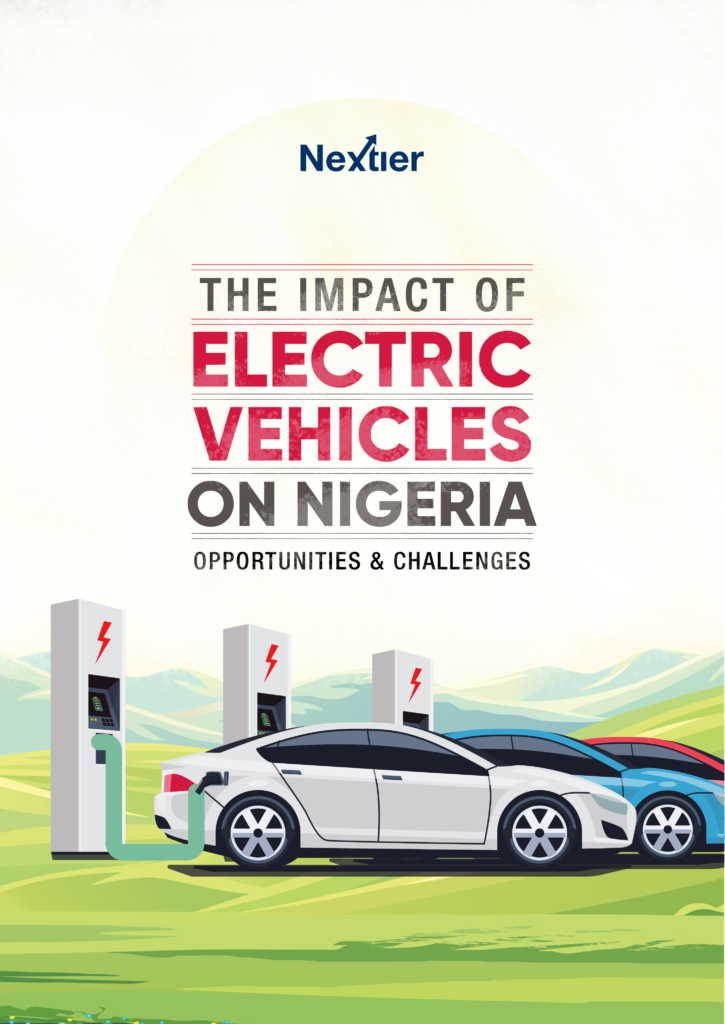
Electric vehicles (EVs) are revolutionising the transportation industry worldwide, providing a cleaner, more sustainable alternative to conventional fuel-powered vehicles. In Nigeria, a country heavily dependent on fossil fuels, adopting EVs presents many opportunities and challenges for its energy landscape.
OPPORTUNITIES
Reduced Emissions and Air Pollution
One of the primary advantages of EVs is their ability to lower carbon emissions significantly. Nigeria, the largest oil producer in Africa, faces numerous environmental challenges due to increased pollution from the combustion of fossil fuels.
Transitioning to EVs can help mitigate these issues by curbing air pollution and greenhouse gas emissions and improving air quality and health outcomes. In a country like Nigeria, where urban centres grapple with air pollution, transitioning to EVs can significantly improve public health.
By integrating EVs into the transportation system, Nigeria can reduce its carbon footprint and align with global climate goals.
Energy diversification
Historically, Nigeria’s energy sector has centred around oil and gas production. Over-reliance on fossil fuels presents economic vulnerabilities, as oil price fluctuations can impact the country.
Embracing EVs provides an opportunity to diversify the energy mix, incorporating renewable resources which contribute to the production of electricity required for EV charging infrastructure. This diversification can enhance energy security and stimulate economic growth through renewable energy investments.
Job Creation and Economic Growth
The introduction of EVs in Nigeria necessitates establishing a robust charging infrastructure deployment and manufacturing and maintenance services. These activities create employment opportunities and boost economic growth.
The demand for skilled workers and technicians and opportunities for research and development would increase, promoting innovation. Nigeria can be a hub for EV-related industries, attracting foreign investment and technology transfer.
Energy Independence
Despite being an oil-producing nation, Nigeria imports a substantial portion of its refined petroleum products due to inadequate refining capacity. Nigeria also heavily relies on fossil fuels for electricity generation.
Promoting EV adoption can stimulate investment in local renewable energy infrastructure, improve trade balance, and increase self-sufficiency.
Technological Leapfrogging
Nigeria can bypass the conventional internal combustion engine (ICE) phase by leapfrogging directly to EVs. This leapfrogging can accelerate technological advancements and promote sustainable mobility solutions.
CHALLENGES
Infrastructural Gap
Transitioning to EVs requires substantial investments in charging infrastructure. Nigeria, a vast country with limited electricity coverage, faces challenges in establishing a comprehensive network.
Addressing the infrastructural gap would entail improving the power grid and installing charging stations across major highways, cities, and remote areas. Overcoming these challenges will require strong collaborations between the government, private sector, and international partners.
Grid capacity and stability
The existing power grid in Nigeria is already under strain due to infrastructural deficiencies and inadequate maintenance. The additional demand from widespread EV adoption can further stress the grid’s capacity and stability.
Substantial upgrades and investments in the power infrastructure would be necessary to accommodate the increased load and ensure a reliable and uninterrupted electricity supply.
Affordability and accessibility
Electric vehicles are generally more expensive than conventional cars due to battery costs. Ensuring their affordability and accessibility to the masses would be a challenge, as the initial investment and cost of maintenance may be prohibitive for many Nigerians. Implementing policies incentivising EV ownership, such as tax breaks and subsidies, could help mitigate this challenge.
Battery disposal and recycling
Electric Vehicles heavily rely on lithium-ion batteries, which present challenges regarding their disposal and recycling. Nigeria needs to develop robust policies and recycling facilities to handle the increasing volume of used batteries. This will prevent pollution and allow valuable resources to be recovered and reused, promoting a circular economy.
Consumer Awareness and Education
Public awareness about EV benefits, charging infrastructure, and maintenance is essential. Educational campaigns can dispel myths and encourage informed decision-making.
In conclusion, Nigeria stands at a crossroads where embracing EVs can reshape its energy landscape. Strategic policies, collaboration between government and private sectors, and public engagement are vital for realising the full potential of electric mobility.
By addressing challenges and seizing opportunities, Nigeria can pave the way for sustainable transportation and a cleaner environment.